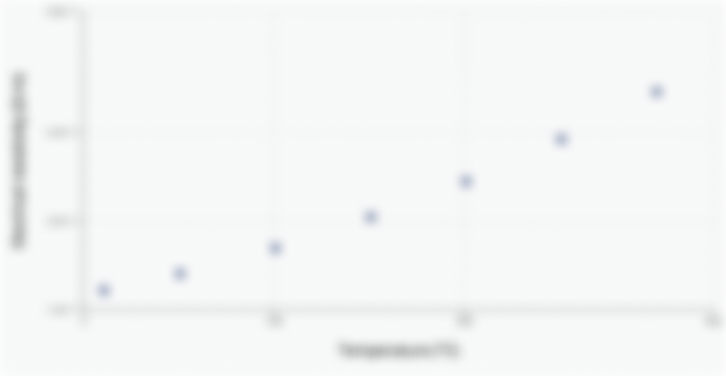Properties
General
Mechanical
| Property | Temperature | Value | Comment | ||
|---|---|---|---|---|---|
Elastic modulus | 23.0 °C | 2.6 GPa Show Material materials with Elastic modulus of 2.6 GPa | ISO 527-1/-2 | ||
Elongation | 23.0 °C | 500 % Show Material materials with Elongation of 500 % | min. | ISO 527-1/-2 | ||
Elongation at yield | 23.0 °C | 4 % Show Material materials with Elongation at yield of 4 % | ISO 527-1/-2 | ||
Flexural modulus | 23.0 °C | 2.4 GPa Show Material materials with Flexural modulus of 2.4 GPa | ISO 178 | ||
Flexural strength | 23.0 °C | 85 MPa Show Material materials with Flexural strength of 85 MPa | ISO 178 | ||
Hardness, Ball Indentation | 23.0 °C | 139 MPa Show Material materials with Hardness, Ball Indentation of 139 MPa | ISO 2039-1 | ||
Impact strength, Charpy notched | -6.0 °C | 4 kJ/m² Show Material materials with Impact strength, Charpy notched of 4 kJ/m² | ISO 179/1eA | ||
23.0 °C | 5 kJ/m² Show Material materials with Impact strength, Charpy notched of 5 kJ/m² | ISO 179/1eA | |||
Impact strength, Izod notched | -30.0 °C | 130 kJ/m² Show Material materials with Impact strength, Izod notched of 130 kJ/m² | No Break @ 23°C, ISO 179/1eU | ||
Impact strength, Izod unnotched | -30.0 °C | 5 kJ/m² Show Material materials with Impact strength, Izod unnotched of 5 kJ/m² | ISO 180/1A | ||
23.0 °C | 5 kJ/m² Show Material materials with Impact strength, Izod unnotched of 5 kJ/m² | ISO 180/1A | |||
Poisson's ratio | 23.0 °C | 0.38 [-] Show Material materials with Poisson's ratio of 0.38 [-] | |||
Yield strength | 23.0 °C | 57 MPa Show Material materials with Yield strength of 57 MPa | ISO 527-1/-2 | ||
Impact strength, Charpy unnotched | No Break @ 23,-6°C, ISO 179/1eA | ||||
Thermal
| Property | Temperature | Value | Comment | ||
|---|---|---|---|---|---|
Coefficient of thermal expansion | 23.0 °C | 1.1E-4 1/K Show Material materials with Coefficient of thermal expansion of 1.1E-4 1/K | ISO 11359-1/-2 | ||
Coefficient of thermal expansion, transverse | 23.0 °C | 1.2E-4 1/K Show Material materials with Coefficient of thermal expansion, transverse of 1.2E-4 1/K | ISO 11359-1/-2 | ||
Glass transition temperature | 55 °C Show Material materials with Glass transition temperature of 55 °C | ISO 11357-1/-2 | 18°F/min | |||
Heat deflection temperature, 0.45 MPa | 180 °C Show Material materials with Heat deflection temperature, 0.45 MPa of 180 °C | ISO 75-1/-2 | annealed | |||
Heat deflection temperature, 1.80 MPa | 60 °C Show Material materials with Heat deflection temperature, 1.80 MPa of 60 °C | ISO 75-1/-2 | annealed | |||
Melting point | 223 °C Show Material materials with Melting point of 223 °C | ISO 11357-1/-3 | 18°F/min | |||
Specific heat capacity | 23.0 °C | 2100 J/(kg·K) Show Material materials with Specific heat capacity of 2100 J/(kg·K) | of melt | ||
Vicat softening temperature | 175 °C Show Material materials with Vicat softening temperature of 175 °C | ISO 306 | 90°F/h, 11 lbf | |||
Flammability | Glow Wire Flammability Index, 120mil: 750 °C, FMVSS Class: SE - | ||||
Rheological Properties
| Property | Temperature | Value | Comment |
|---|---|---|---|
Melt mass-flow rate | 10 g/10min Show Material materials with Melt mass-flow rate of 10 g/10min | ISO 1133 | 250°C/2.16kg | |
Shrinkage | 23.0 °C | 1.7 % Show Material materials with Shrinkage of 1.7 % | ISO 294-4, 2577 |
Shrinkage, transverse | 23.0 °C | 1.7 % Show Material materials with Shrinkage, transverse of 1.7 % | ISO 294-4, 2577 |
Technological properties
| Property | ||
|---|---|---|
| Processing methods | Drying Recommended: yes, Drying Temperature: 120°C, Drying Time, Dehumidified Dryer: 2-4h, Processing Moisture Content: ≤0.04%, Melt Temperature Optimum: 250°C, Min. melt temperature: 240°C, Max. melt temperature: 260°C, Mold Temperature Optimum: 80°C, Min. mold temperature: 30°C, Max. mold temperature: 130°C, Hold pressure range: ≥60MPa, Hold pressure time: 4s/mm, Back pressure: As low as possible, Ejection temperature: 170°C | |
